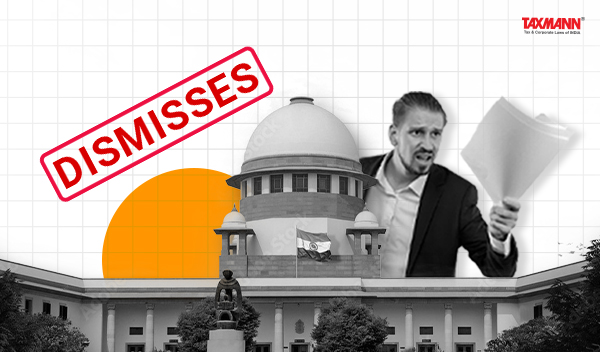HC Dismisses Winding-up Plea Over Triable Dispute of Overcharging | Directs Petitioner to Approach Commercial Court
- Blog|News|Company Law|
- 2 Min Read
- By Taxmann
- |
- Last Updated on 30 May, 2024

Case Details: Newage Scaffoldings (P.) Ltd. v. Paramount Infraventure (P.) Ltd. - [2024] 162 taxmann.com 848 (Delhi)
Judiciary and Counsel Details
-
- Dharmesh Sharma, J.
- R.K. Sahni & Ms Pooja Handa, Advs. for the Petitioner.
- Akhil Krishan Maggu, Adv. for the Respondent.
Facts of the Case
In the instant case, the respondent company placed an order for certain construction equipment and steel scaffolding by way of written purchase orders, and such goods were duly supplied by petitioner to respondent company at required site.
Thereafter, petitioner raised certain bills/invoices against said purchase orders for an amount of Rs. 17.67 lakh. Despite repeated reminders, respondent company failed to discharge its liability, and consequently, petitioner was constrained to serve a statutory legal notice, calling upon respondent company to discharge its liability.
The respondent company failed to settle the outstanding amount, leading to the initiation of present winding-up proceedings. Notably, in response to the legal notice served by the petitioner, the respondent, through their counsel, argued that the transactions concerning equipment supply and payments constituted a running account between the parties.
It was contended that orders totaling over Rs. 58 lakhs had been placed, and contrary to the petitioner’s claims, the respondent asserted that the petitioner had consistently overcharged them. In fact, the respondent asserted that the petitioner owed them a refund of 25% of the total billed amount, amounting to Rs. 14.62 lakhs, due to alleged overcharging.
Therefore, it was stated on behalf of respondent company that debt sated to be payable and claimed by petitioner was disputed, and even if such debt was admitted, respondent had a genuine counter claim to amount claimed by petitioner.
High Court Held
The High Court observed that Company Court cannot enter into an adjudication of disputed facts, wherein a finding on facts is to be recorded as regards whether liability stated is actually due and payable, and such a case would be subject matter of a commercial suit.
Since the contentions raised by both parties constitute triable issues, particularly regarding the existence of a payable debt, the High Court held that the instant company petition was deemed to be dismissed as withdrawn. As a result, the petitioner was granted the liberty to institute proceedings before the appropriate Commercial Court. Furthermore, the petitioner would seek condonation of delay, in accordance with the law, for the period of time which had been spent during the pendency of these winding-up proceedings.
Disclaimer: The content/information published on the website is only for general information of the user and shall not be construed as legal advice. While the Taxmann has exercised reasonable efforts to ensure the veracity of information/content published, Taxmann shall be under no liability in any manner whatsoever for incorrect information, if any.

Taxmann Publications has a dedicated in-house Research & Editorial Team. This team consists of a team of Chartered Accountants, Company Secretaries, and Lawyers. This team works under the guidance and supervision of editor-in-chief Mr Rakesh Bhargava.
The Research and Editorial Team is responsible for developing reliable and accurate content for the readers. The team follows the six-sigma approach to achieve the benchmark of zero error in its publications and research platforms. The team ensures that the following publication guidelines are thoroughly followed while developing the content:
- The statutory material is obtained only from the authorized and reliable sources
- All the latest developments in the judicial and legislative fields are covered
- Prepare the analytical write-ups on current, controversial, and important issues to help the readers to understand the concept and its implications
- Every content published by Taxmann is complete, accurate and lucid
- All evidence-based statements are supported with proper reference to Section, Circular No., Notification No. or citations
- The golden rules of grammar, style and consistency are thoroughly followed
- Font and size that’s easy to read and remain consistent across all imprint and digital publications are applied



 CA | CS | CMA
CA | CS | CMA
